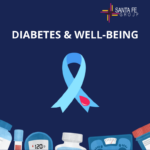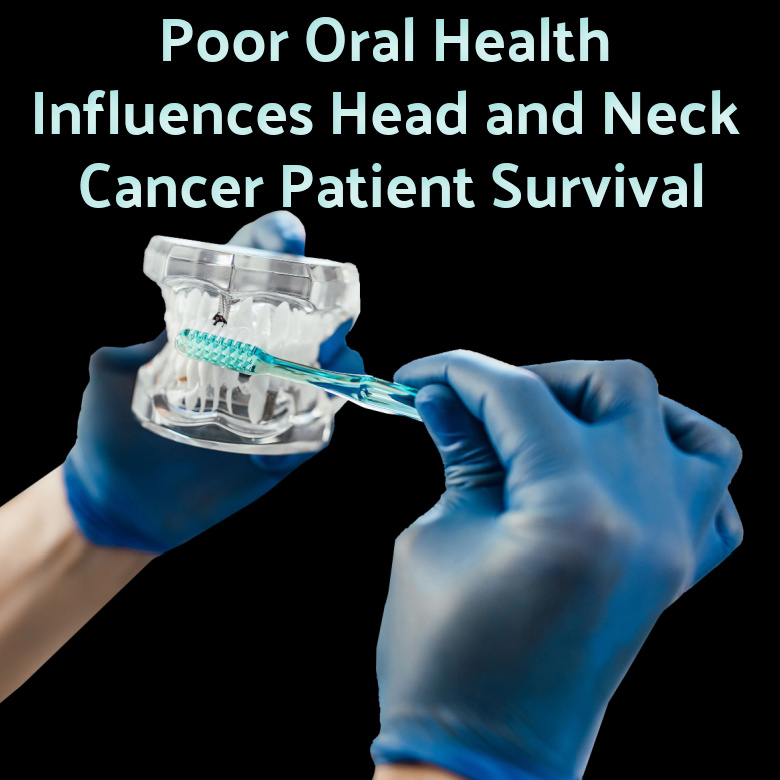Poor Oral Health Influences Head and Neck Cancer Patient Survival: An International Head and Neck Cancer Epidemiology Consortium Pooled Analysis
Poor oral health has been reported as an independent risk factor for head and neck squamous cell carcinoma. In a study published in September 2023 in the Journal of the National Cancer Institute, in which an analysis was presented of the largest cohort of head and neck squamous cell carcinoma patients used to investigate the impact of oral health on survival, strong associations between retention of natural teeth and dental visits and better survival were identified.
Click here to download pdf.






In a world where the boundary between medicine and dentistry is beginning to blur, the sentiment of Dr Charles Mayo reverberates with newfound urgency. As modern healthcare adopts a holistic approach, the dental profession stands at a pivotal crossroads, poised to harness an often-overlooked ally in disease prevention—the humble yet potent fluid of saliva.
Picture the dental office, typically a realm of clean whites, whirring drills, and the sterile scent of antiseptics. Yet, within these walls, a revolution is quietly brewing. Dentists, those custodians of our oral health, are taking on a more expanded role. No longer is their focus solely on cavities and gums; they are becoming vigilant sentinels of systemic wellness. The emergence of diagnostic testing has ignited a new pathway for patient engagement, one that intertwines dental and medical practices through the lens of a simple yet profound biofluid: saliva.
Saliva, often dismissed as mere moisture that aids in digestion, is far more than that. Each drop of this viscous elixir carries clues about our bodily health, reflecting our biochemical state with remarkable accuracy. Composed of water, proteins, nucleic acids, and minerals, saliva is a treasure trove of information, accessible with minimal intrusion. As individuals produce between 0.5 and 1.5 litres daily, it becomes a reservoir of our health narrative, capturing the essence of our being.
This newfound recognition of saliva as a diagnostic medium is monumental. Gone are the days when patients would endure the discomfort of needles and the anxiety of blood draws for routine screenings. The dental chair now transforms from a site of treatment to a hub of wellness monitoring where saliva can serve as a mirror, revealing the complexities of our internal landscapes.
As science advances, the implications become staggering. With the ability to identify biomarkers for various diseases through saliva analysis—ranging from hormonal imbalances to inflammatory responses—dentists are positioned to detect health issues before they escalate, effectively acting as frontline guardians of patient well-being. Imagine a world where a routine dental appointment includes an evaluation of systemic health, where the insights gleaned from a saliva sample can lead to early interventions that save lives.
Moreover, the logistics of saliva collection present a compelling case for its integration into medical practice. The simplicity and non-invasive nature of saliva collection empower patients, encouraging them to be proactive participants in their own health management. No more dread of the needle; instead, a seamless and safe experience that respects patient comfort while fostering collaboration between dental and medical providers.
As this shift unfolds, the collaboration between dentists and physicians could evolve into a symbiotic relationship, where knowledge and data fluidly exchange across disciplines. With dentists on the frontline of oral health, their engagement in systemic wellness could transform the paradigm of preventive care, ensuring that patients receive comprehensive assessments that address the entire spectrum of their health.
Dr Mayo’s vision, once a distant echo in the corridors of time, is now tangible and urgently relevant. The dental profession is emerging from the shadows and stepping into a role that compels recognition and respect. Saliva is not just a byproduct of digestion; it is the key to unlocking a future where dentistry and medicine converge, fostering a healthcare system that champions prevention and holistic care.
In this evolving landscape, it is up to today’s dental practitioners and medical providers to embrace this moment, transforming the vision of the past into a thriving reality. In this reality, every drop of saliva tells a story, every dental appointment is an opportunity for early detection, and every patient is empowered on their journey toward optimal health.